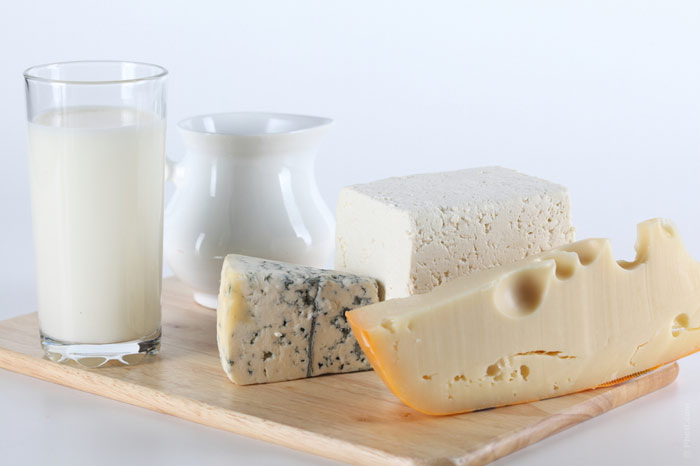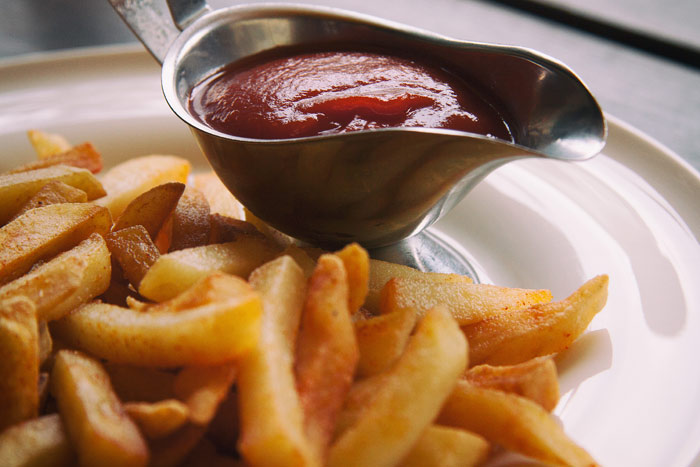With proper nutrition, the first symptoms of menopause can be delayed and significantly relieved.
How nutrition changes during menopause
When a woman enters menopause, hormonal changes occur. Estrogen and progesterone decrease, which negatively affects metabolism and can lead to weight gain, increased cholesterol and impaired absorption of carbohydrates. During this time, many women experience hot flashes and difficulty in sleeping. In addition, hormonal changes lead to decreased bone density, which increases the risk of fractures.
Although menopause is an inevitable decline in female fertility, its symptoms can be alleviated, for example, through nutrition. This has been proven in a study of women in England conducted by the scientists from the University of Leeds who studied the link between diet and menopause. The research, published in the Journal of Epidemiology and Public Health, has shown that consuming certain food groups can significantly ease the period and even delay menopause for several years.
Data analysis showed that the consumption of oily fish and fresh legumes (in particular, peas and green beans) leads to a later onset of menopause. On the other hand, menopause occurs earlier by about 1-1.5 years in those who consume large amounts of sugar and flour.
Foods Recommended During Menopause
Dairy products. A decrease in estrogen levels during menopause can increase the risk of fractures in women. Dairy products (milk, yoghurt, and hard cheeses) contain calcium, phosphorus, potassium, magnesium, which are essential for healthy bones. It also improves sleep. As for the now fashionable stories about intolerance to dairy products, we would like to advise you once again to contact the specialists rather than come up with a “diagnosis” yourself.
Healthy fats. In particular, omega-3 fatty acids found in fatty fish (mackerel, salmon) and anchovies, as well as in flax and chia seeds, reduce the frequency of hot flashes, the severity of night sweats, and cholesterol.
Whole grains. They are rich in nutrients, fiber and B vitamins. They also reduce the risk of cardiovascular diseases, cancer and premature death. Scientists found that people who ate three or more servings of whole grains a day had a 20 to 30 percent lower risk of developing heart disease and diabetes compared to people who ate mostly digestible carbohydrates. Whole grains include brown rice, whole grain breads, barley, quinoa, and rye.
Fruits and vegetables. They contain vitamins and minerals, fiber and antioxidants. Cruciferous vegetables can be especially beneficial for postmenopausal women. In one study, eating broccoli reduced the levels of estrogen linked to breast cancer while increasing the levels of estrogen, which is believed to protect against cancer.
Phytoestrogens. While there has been some controversy over their inclusion in the diet, recent research suggests they can provide health benefits, especially for women going through menopause. Foods that contain phytoestrogens include soy, chickpeas, peanuts, flax seeds, barley, grapes, berries, plums, green and black tea.
Proteins. The decrease in estrogen during menopause leads to a decrease in muscle mass. High protein foods include eggs, meat, fish, legumes, and dairy products. Alternatively, you can add protein powders. The video can give you the answer to the age-old question: how to eat and to lose weight.
What not to eat during menopause
Sugar and foods with added palm oil. High blood sugar levels increase the frequency of hot flashes in menopausal women. Limiting your intake of sugars and foods with added palm oil and flour products such as white bread, crackers, and baked goods can help reduce them.
Alcohol and caffeine. Many women suffer from insomnia during menopause. Caffeine and alcohol are known sleep disturbers, so you should limit or eliminate their intake. Remember, caffeine is even found in tea and some sodas.
Avoiding spicy foods is a popular recommendation among doctors for menopausal women. However, there is no evidence to support this theory due to conflicting studies. Since the reaction to spicy food is individual, we advise you to make a decision based on personal observation. If eating spicy foods does not worsen your condition and you love them, you should not worry about it.
Foods high in salt. In a study of over 9,500 postmenopausal women, sodium intake over 2 grams per day was associated with a 28% increased risk of osteoporosis. In addition, after menopause, lower estrogen levels increase the risk of hypertension. Reducing your salt intake can help reduce this risk. According to a study involving 95 postmenopausal women, people who kept to a moderate-salt diet improved overall mood compared to women who had a generally healthy diet without salt restriction.









